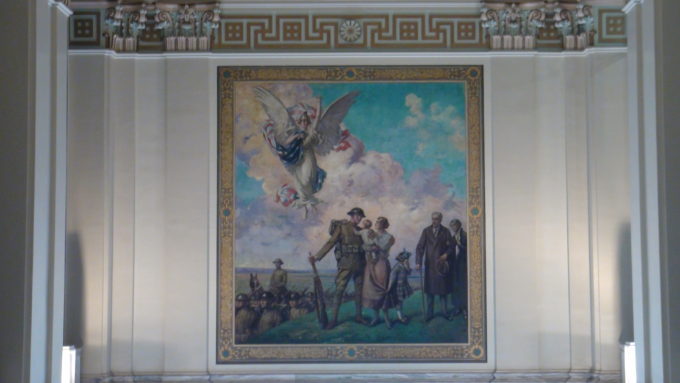
Thursday, 26 March 2020
I write to you, little children,
Because your sins are forgiven you for His name’s sake. 1 John 2:12
This verse starts an entirely new section of the letter; one which is ordered by repetition, and one which has a decided symmetry. Modern translations tend to offset it in a manner one would recognize as poetic. It is formed as a pair of “triplets” and in the original Greek, the tense switches in the middle of the section, but without any indication as to why this occurs.
There is an enormous amount of commentary concerning 1 John 2:12-14, and it is quite often compiled into a single commentary rather than three individual commentaries. This is because of the unusual addressees (little children, young men, and fathers), and because of the change from “I write” of the first two verses to “I have written” of the last verse.
Because of the repetition of the addressees, and the unusual formatting of the words, it is hard to analyze each verse individually without missing the overall structure of this wonderful poetic offset.
As a simple breakdown of the three together, Charles Ellicott reveals the following –
1.All readers.
1.Children in age. [Suggested, according to the perfect simplicity of St. John’s style, by the term used in the first set for his readers generally.]
2.Fathers.
2.Fathers.
3.Youths.
3.Youths.
Reasons.
1.Forgiveness.
1.Knowledge of the Father.
2.Knowledge of Christ.
2.Knowledge of Christ.
3.Victory.
3.Strength, perseverance, victory.
With this general structure in mind, John begins this offset with the words, “I write to you, little children.” The verb is present tense, and should say, “I am writing.” The word for “little children” is teknion. It signifies a little child. It is only used by John, eight times, in this epistle.
Some scholars say it should be taken as a literal address to little children. Others say that John is speaking figuratively of Christians in general, or of immature Christians. Referring to the other uses of the word in Chapters 3, 4, and 5, it is evident that John is using it as a term of endearment, not as an address to literal infants.
The word for “little children” here is different than the word used for “little children” of the next verse. Thus, the “little children” of this verse is speaking in a general sense to all three of the categories in verses 2:13 and 2:14. That is consistent with his use of this term throughout the epistle. In other words, the same people he calls “little children” in this verse will be defined by their maturity in Christ in the next two verses as “fathers,” “young men,” and “little children” (using a different word).
The variation in terms from little children, to young men, to fathers is then a literary technique intended to highlight his words and show an advancement in thought.
With this in mind, John next says, “Because your sins are forgiven you.” Here, the verb is in the perfect tense. It more accurately reads “have been forgiven.” The act is done, once and forever.
The reason for calling his audience “little children” becomes obvious here. John is speaking of and to all people. As all people are born in Adam, all people – including little children – have inherited sin. From the moment of conception, through the gestation period, at the time of birth, and as a child grows to the age of weaning, all people bear the stain of Adam’s sin.
Because of this, there is a disconnect between God and man. It is one which extends to all. However, in Christ there is forgiveness. The one who comes to Christ in faith, as a little child, is granted forgiveness of sins “for His name’s sake.” God was pleased to forgive the erring child of his sins because of that simple act of faith in what He accomplished through the giving of His own Son.
Therefore, John tenderly notes the love of God in Christ for the sons of Adam who are willing to come to Him through Jesus and become adopted sons of God. They become His “little children,” and John addresses them as such, calling them his own “little children” who are now in the faith and under his care as an Apostle of Jesus Christ.
Life application: As the words “your sins are forgiven” are in the perfect tense, meaning the forgiveness has already been accomplished and is complete, we have, again and for the ten jillionth time in the New Testament, the absolute assurance of eternal salvation. That which has been forgiven is finished, complete, and perfect. Future transgressions are already under the blood and forgiven even though we haven’t yet committed them.
Let us endeavor to not commit them though, but to live for our Heavenly Father through the great sacrifice of our Lord Jesus and for His name’s sake. Should we falter in our attempts, let us recognize our failure and press on in His great and eternal assurance. No greater gift has ever been given, so let us remember it in both our failings and in our determined effort to move forward. Let us put the past behind.
O Heavenly Father! As your little children, we thank You for the tender words of forgiveness You provide us in Your word. Thank You for being the gracious and loving Creator who cares enough, even about us, to send Your Son as an offering of peace and reconciliation. Give us the determined effort to live for You, through His name, all the days of our lives. Amen.




